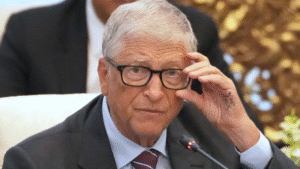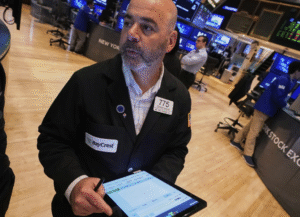Business sentiment among large Japanese manufacturers has declined for the first time in a year, largely due to concerns over U.S. President Donald Trump’s tariffs, according to a recent survey by Japan’s central bank.
The Bank of Japan’s quarterly “tankan” survey revealed that the index measuring the difference between companies optimistic about economic conditions and those feeling pessimistic dropped from plus 14 in December to plus 12. This marks the first decline in four quarters.
Key sectors like automotive and electronics, which heavily rely on exports to the U.S., are feeling the pressure. Japan’s economic growth is also being affected by a shrinking population, though rising wages and a boom in tourism have provided some support.
Major automakers such as Toyota and Nissan are particularly concerned about U.S. auto tariffs. Prime Minister Shigeru Ishiba announced that the government is making final efforts to negotiate an exemption for Japan, even offering to travel to Washington to meet with Trump if necessary.
Starting Thursday, the U.S. will impose a 25% tariff on auto imports, with taxes on fully imported cars taking effect at midnight, U.S. time. Additional tariffs on auto parts are expected to follow by May 3. Japanese car manufacturers with plants in Mexico are also affected by Trump’s recent tariffs on Mexican imports.
The Bank of Japan is scheduled to hold a monetary policy meeting ending April 1, where the tankan survey’s findings will play a key role in deciding whether to adjust interest rates.
Japan’s export-driven economy faces challenges from declining global demand, rising material costs, and a weakening yen. The U.S. dollar has been trading near 150 yen, significantly higher than the 110-yen level from five years ago.
Meanwhile, sentiment among large non-manufacturers improved, rising from plus 33 to plus 35, thanks to strong tourist activity. Additionally, Japan’s unemployment rate slightly improved to 2.4% in the latest government report.














